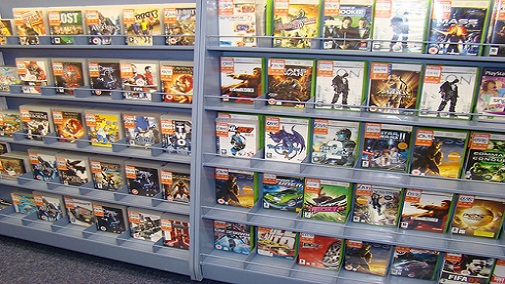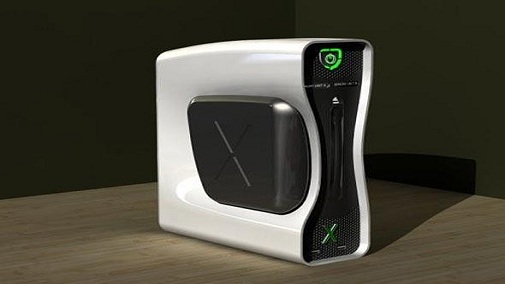If you’re reading this, the likelihood is that you play games. Whether you appreciate gaming as nothing more than a hobby or wax lyrical about the artistic achievements of your favourite franchise, it’s easy to forget about the business side of things that goes on behind the scenes. The recent issues with UK retailer GAME entering administration has raised a lot of issues regarding the sustainability of physical game sales but, GAME group’s business practice aside, the recent move by publishers to limit used game sales is a key part of what will lead all high street stores like GAME to inevitably close shop.
It’s easy to forget when you churn through your favourite action blockbuster, but the average console title costs a huge amount of money and staff time to make; an investment that makes every game at the risk of not cutting a profit in today’s difficult economy. With an increased financial tension within the industry, used game sales have come under fire by publishers fearing a loss of profit to second hand turnaround. The issue comes in how second hand game sales fuel lower priced games. The second hand market works as a double edged sword within the industry for, whilst the lower price makes used games a real boon for consumers, it often leaves developers and publishers underfunded. They are however necessary. As the RRP of new games has been locked at the £40/$60 mark for years now, second hand sales are the main source of competition between retailers, a competition that would leave consumers in the lurch were it not to exist.
Two clear examples stand out to show the need for competition within the market place. Showing us what not to do was the PSP Go, a hardware revision Sony released for its PSP system back in 2009. The unit immediately fell on harsh criticism and, whilst this was in part to do with a large price tag on the system itself, its lack of a UMD drive for physical media prevented it from being cost effective for users. Without a UMD drive, users could only acquire games for it through Sony’s online store. Whilst this works on the likes of the Xbox Live Arcade for cheaper download only titles, having only one source from which to buy full retail games from boosts their price astronomically, resulting in user dissatisfaction and a tendency to buy fewer titles. A single download source model used by many console specific digital stores lacks the competitive pricing of physical medium due to the ability to buy second hand with physical games. Consider Xbox Live’s Games on Demand service. In the UK, the average full retail Xbox 360 game costs between £20 and £30. Hopping down to a local second hand seller, you’ll see the same games often for below £15 based on how old said title is. Digital game sales are certainly the future, but adopting a single store model for a system prevents competition that is good for the industry. Though less revenue is made per game, cheaper prices make more people likely to pay up.

As long as the RRP of new games remains set, used games are the main appeal of high street retailers
In contrast to Sony’s issues with the PSP Go, we have the unmitigated success that is Valve’s Steam platform. PC games are probably the only sub-section of the industry that have had vast success in the digital download sector, almost entirely eclipsing the sale of physical games. Steam is the big success story of this type of distribution model, but why is it that Steam is more used than any other download store? The main reason is competition. As one of the few truly open platforms, PC users have a choice of online stores to get their games from, forcing services such as Steam and EA’s Origin to keep their prices as low as possible or risk losing potential customers. The other big deal with PC games is piracy, something that Valve’s Gabe Newell has attempted to tackle with Steam. Newell once said that the piracy that so greatly detracts from the PC gaming community is a “service problem,” a problem he feels he can mitigate by providing cost effective and convenient methods of game distribution. It’s hard to tell whether he’s right about cutting down on PC game piracy, but the sharp sale spikes seen each time Steam has a sale certainly show that Valve are doing something right. Steam is the go to example for a successful online store for, not only is it in direct competition with other online distribution platforms, it is also in direct competition with the abundance of piracy that occurs within PC gaming.
Competition then is what we need to keep the industry moving, and second hand game sales are a necessary part of the competition within physical game sales. Whilst it takes money away from publishers, it has the side effect of making developers work harder on their games. Theoretically speaking at least, developers must always strive for their new game to be better than used titles on the market, lest they lose out on potential buyers. There is a downside to how used games affect development though, for certain developers have been seen to use rather cheap game lengthening tactics in order to prevent their games from being traded in. A decade or two ago, collectibles were scarcely seen in games, yet now almost every single title has some form of lifespan increasing currency to scour for. Likewise, so many games recently have had multiplayer elements added, for better or for worse. These elements aren’t necessarily a bad thing, but there are clear examples of when they are plain unnecessary or badly executed. Leading on from multiplayer is the DLC issue, with many publishers including DLC codes for multiplayer components in new copies of games only in order to mitigate the losses they see on used copies. Complain all you want about having to fork out extra cash, for if this is what it takes to prevent companies from trying ban second hand sales altogether, (as Nintendo have been trying to do for years now) then I’ll happily pay an extra few pounds for an online pass.
Having made claims for the need of second hand sales and competition within digital domains, it doesn’t change the fact that used games sales and competitive pricing aren’t exactly going anywhere. Looking forward to the next generation of consoles though, these practices could conceivably die out. Rumours have been up and down for the past few weeks about formats for the PS4 and Xbox 720, with many sources and analysts speculating about systems that Sony and Microsoft may use to prevent second hand games from working on their next generation hardware. Combine this with the two systems’ high probability of moving to using digital distribution through their proprietary distribution infrastructures only, and we have a PSP Go situation on our hands where Sony and Microsoft can charge whatever they want without fear of competition.
So how does this tie into the issues GAME are facing? It seems only a few years ago that local games stores were getting squeezed out of the market by GAME, but now GAME are feeling the pinch too on account of the success of online platforms. As the main game retailers in the UK, the loss of so many GAME and Gamestation stores hints at a future where digital services are the primary method of getting games. Should these services act more like the PSP Go and less like Steam, we may have a serious issue on our hands as an industry. It’s unlikely to turn that way, but there’s a chance, and that alone should get you considering the possibilities of what the future may hold for the price of games and the methods by which they are distributed.
















